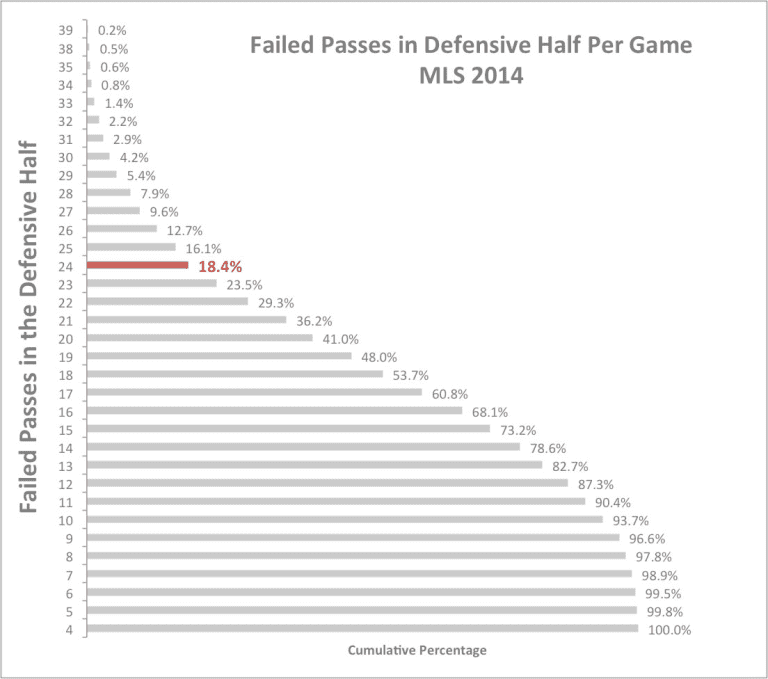The last time the US national team lost by three or more goals was in May of 2012. That was against Brazil, who were ranked sixth at the time.
I have a hard time believing the Irish team that just waxed the floor with the US to the tune of 4-1 would be even the sixth-best team in MLS. That was, as Ian Darke and Taylor Twellman pointed out, a "B" or "C" team at best.
Understand this: reading too much into a friendly - good or bad - is always a risk. But when bad friendlies only reinforce the problems that cropped up in actually meaningful games, then you'd be a fool not to pay quite a bit of attention and do some real work trying to figure out what's going wrong.
Here are three takeaways from the US loss:
1. Stop playing guys out of position
The idea that putting a d-mid in a wide position makes you better defensively is flawed. D-mids understand how to play defense – positionally and otherwise – in the center of the field. Where the game is happening, how to be the stopper at the bottom of the funnel, when to lay on a reducer, how to prevent up-the-gut penetration. It’s a specific mental and tactical skillset, developed over decades of high-level training and competition.
It does not stand to reason that these players automatically understand how to be influential defenders in other positions. One-vs-one? Sure, maybe. That makes some amount of sense.
But soccer is rarely a 1-v-1 game, and a team of great help defenders will almost always be more effective than a team of individualists. Alfredo Morales is not an individualist based upon my limited viewings, but he’s also neither a wide midfielder or a shuttler (and the fact that I wasn’t able to really figure out how he was supposed to be playing the role in this one is a worry). He was asked to fill… one of those roles today, and ended up being a step behind the play for the vast majority of his 65 minutes.
That tweet came in the moments after Ireland’s second goal, in which Morales had drifted way over to the touchline to help out Fabian Johnson. A true wide player in that spot knows he’s got to get the job done – that he’s risking quite a bit by being that far out on the edge. Morales probably understands this if you asked him about it, but it clearly wasn’t instinct. And if you’re not relying upon your instincts in situations like that, you’re going to get into a bit of trouble.
Morales was not the only one at fault. Mix Diskerud didn’t read the danger early, and Johnson needs to, one way or another, do better.
But this whole mess doesn’t happen if Morales wins his challenge – if he instinctively understands the urgency of the situation. The danger of pulling guys out of position is that often times, they don’t.
And the big worry is that this is not something new under Jurgen Klinsmann. I wrote THIS almost exactly three years ago after I watched this team struggle with a d-mid played out position in an attacking role.
2. "Exhausted" is the buzzword of 2014
At the 79th minute Nick Firchau said to me "there's another goal in this game. I don't know where it's going to come from, but somebody's going to score."
My response: "Well, we've given up 9 goals at the 80+ mark in the last 10 games, so we'll cough one up."
Three minutes later Ireland got a goal. Four minutes after that they got a second. And now you can go all the way back to the start of June - an 11-game stretch - and say "this is a pattern that is costing the US results."
It's happened in friendlies, which is one thing. More crucially: it happened in three of the four World Cup games. The US coughed up late scores to Ghana, Portugal and Belgium, and were able to fight back only once.
It's been lost in a cascade of two-a-days and positional switches. It's been lost in a disorganized, haphazard gameplan that values pressing at the expense of team shape. Sometimes that pressing works, as was the case on the lone US goal:
More often, though, it's sapped the energy of an already overtrained team and put guys who can't really defend all that well in space - Johnson, Matt Besler, even Geoff Cameron - into spots where they have to make do-or-die challenges.
3. Playing out of the back is hard
The most powerful buzzword in soccer is "possession," and the best way to get anybody to take you seriously is to say "build from the back." You don't have to know what those words mean, you just have to say them in the right order and drop the occasional "Barcelona" in there.
Under Klinsmann, however, the US have been mediocre to poor playing out of the back. This is as true in 2014 as it was in 2011, and it was the defining aspect of today's game.
This is brutal:

On the day, the US misplayed 24 passes in their own half in this one, a number you see in MLS only about 18 percent of the time. The US are sloppy and naive with the ball, an issue that goes much more to a lack of organization and shape and less to native talent.
Here's something I wrote in February of 2012: Regardless, it’s getting down to “now or never” time. Qualifying begins this summer, and the US have yet to make concrete steps toward the possession game that so many have longed for over the past two decades.
The longing is still there. The execution is not. At what point will Klinsmann figure out what's gone wrong?














